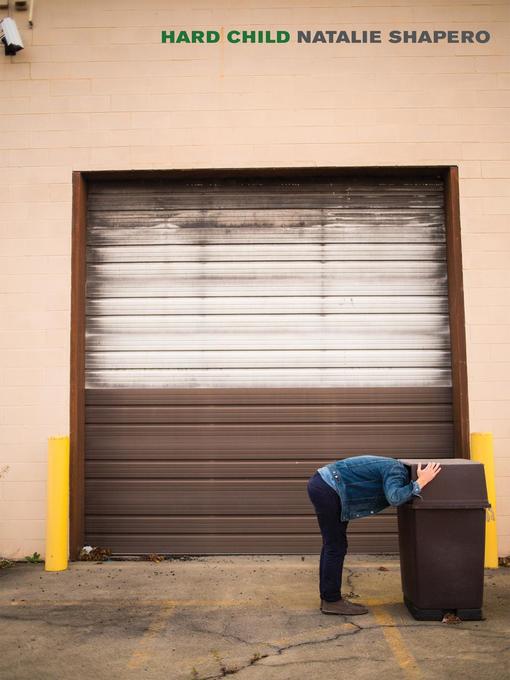
Hard Child
فرمت کتاب
ebook
تاریخ انتشار
2017
نویسنده
Natalie Shaperoناشر
Copper Canyon Pressشابک
9781619321717
کتاب های مرتبط
- اطلاعات
- نقد و بررسی
- دیدگاه کاربران
نقد و بررسی

February 20, 2017
As she transitions into parenthood, Shapero (No Object) contemplates the long investments and fleeting attachments humans make in their turmoil-ridden lives, exuding both mischievousness and melancholy while maintaining a sort of crude optimism. Now a new mother, her admission in the title poem that “there isn’t one/ human tradition I would choose to carry/ forward” reveals as much about her poetry as her lack of interest in doing things conventionally. For a collection in which God appears so frequently, it’s remarkably irreverent. Shapero’s humor generally derives from dark places, as in her tendency toward self-deprecation. “I revere all variants/ of the human/ form, save for my own,” she writes, “being myself composed in haste and subject to uncoupling.” It’s less fatalism than recognition of the limits of the individual: “why is any feat/ so drastically diminished by the presence of/ a second coursing bloodstream, second blur/ of facial features?” Her tight, mainly brief poems work autonomously in the collective, sometimes explicitly linking with their neighbors into loose semblances of narrative. And amid unusually lithe movements, Shapero demonstrates an ability to follow observations to unexpected ends (which is perhaps related to her background in law). “I don’t/ contain within me half enough life to power/ a dog,” Shapero claims, but the evidence in these delightful poems proves otherwise.

March 15, 2017
In this follow-up to Shapero's debut collection, No Object, you may be tempted to see a lawyer's hand, as many of the poems are litigated with unsparing precision. Indeed, Shapero has a JD from the University of Chicago, not that there is any reason to complain. Rather, the work is searching, and in indelible language, finds connections in a random landscape, as in "Outside Less," worth quoting at length: "I have been outside less. I have taken to saying in the days since my daughter was born--passive, as/ though it were somebody/ else who bore her. And bore her. I also have to saying, as though she were a hole/ I have witnessed a woodpecker force/ through the week, a gape in my neighbor's barn side. I have watched as my daughter knocks, / woodpecker-like, her searching mouth into my breast. But I don't mean to say she instills in my body an/ absence. What nothing/ assembles within me was already there." Overall, there is an abiding sadness in this work, as it unblinkingly explores birth and death, war and religion, and how we forever fall short. But there are hard flashes of humor, too. VERDICT The best poems here are quietly piercing in tone and language. For most collections.--Iris S. Rosenberg, New York
Copyright 2017 Library Journal, LLC Used with permission.

April 15, 2017
I, too, am put together to come apart, Shapero (No Object, 2013) writes in Absence, That Which Never. This uncertainty courses through Shapero's second collection, an incisive examination of the precariousness of pregnancy, the twinge of traumatic memories, and the oft-horrific nature of history. In poems both sardonic and sensitive, concise and contemplative, dire and deeply humorous, Shapero grapples with God, who she fears would turn out to be like Houdini; death, which she personifies as the worst / sort of lurker, the best sort of soldier of fortune; and bringing a bed-sprawled, unblessed baby into a world not long / for itself. Adept at addressing hefty burdens, Shapero also exhibits keen curiosity toward the seemingly inconsequential, whether she's admiring a bug that lives only one day or embodying a reluctant bulb, the only one still offering light. Interspersed with excerpts from ads and memorable quotations, and propelled by unrelenting rhythm and striking language, this is a searing portrait of a world as imperfect as it is improbably resilient. Sobering, urgent, and entrancingly irreverent.(Reprinted with permission of Booklist, copyright 2017, American Library Association.)

























دیدگاه کاربران